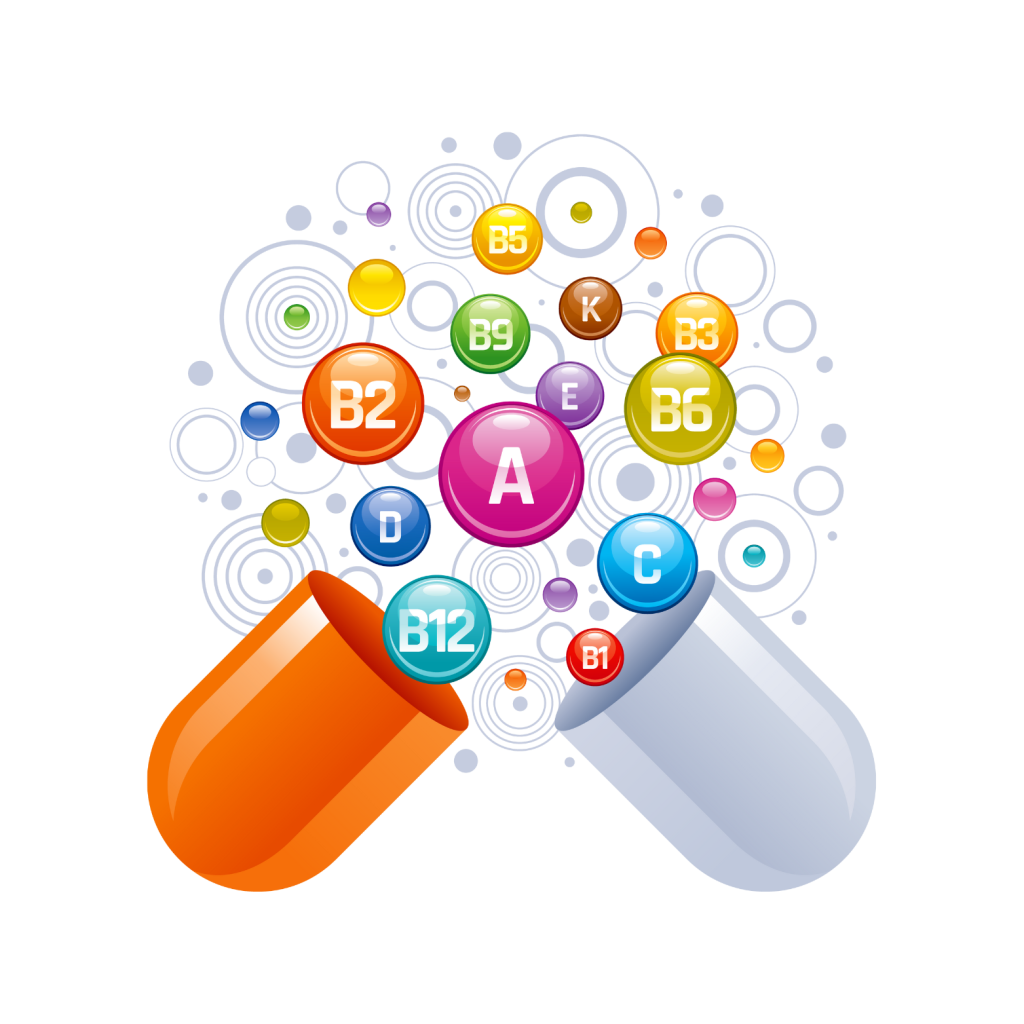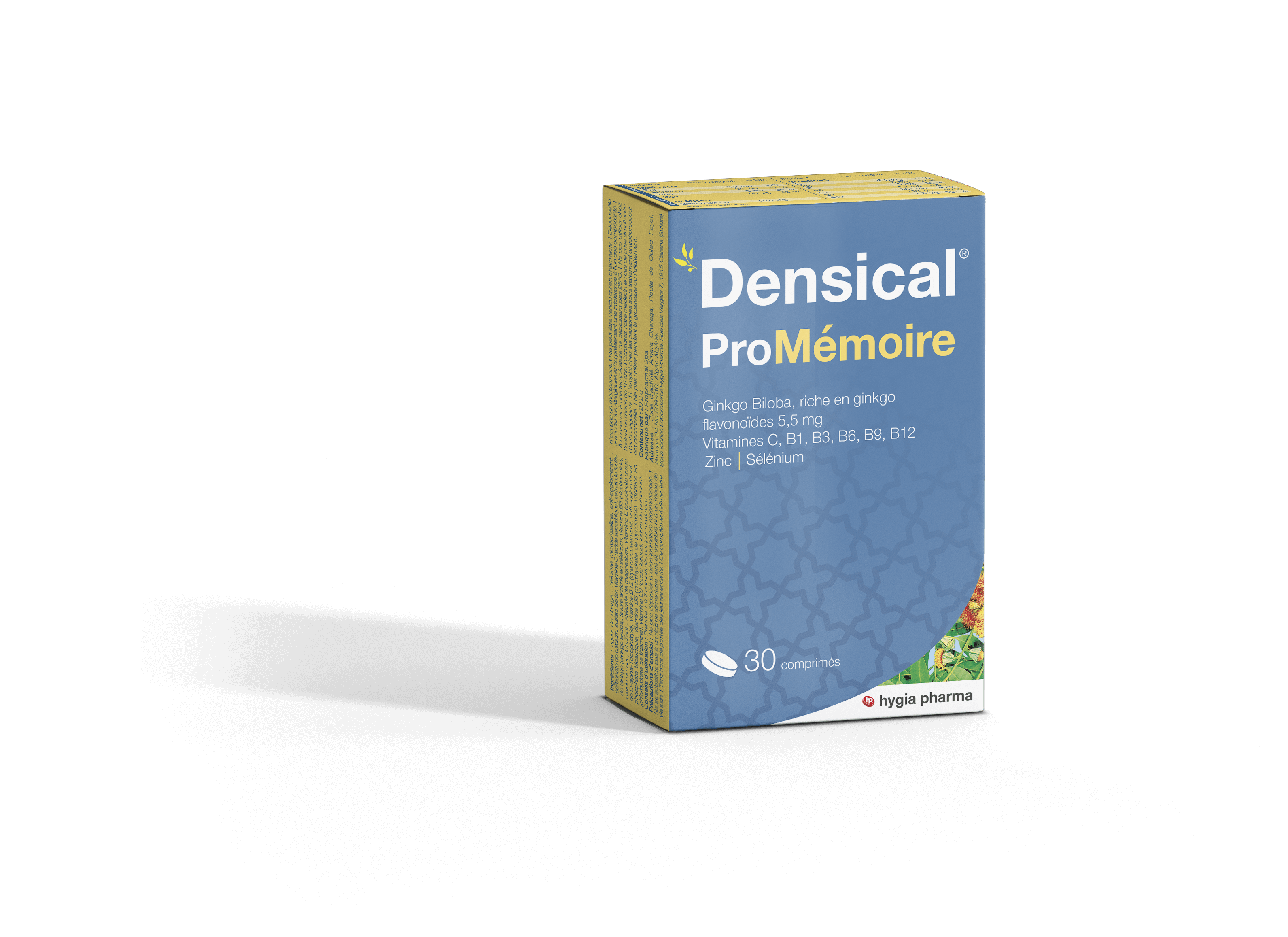
Densical ® ProMémoire is formulated to support your memory and enhance your cognitive abilities. Loaded with minerals, micronutrients and a natural ingredient such as Ginkgo Biloba provides your nervous system with the essential nutrients it needs to function at its best.
ProMémoire is formulated to support your memory and enhance your cognitive abilities. Loaded with minerals, micronutrients and a natural ingredient such as Ginkgo Biloba provides your nervous system with the essential nutrients it needs to function at its best.
support your memory and enhance your cognitive abilities. Loaded with minerals, micronutrients and a natural ingredient such as Ginkgo Biloba provides your nervous system with the essential nutrients it needs to function at its best.
ties. Loaded with minerals, micronutrients and a natural ingredient such as Ginkgo Biloba provides your nervous system with the essential nutrients it needs to function at its best.
D and a natural ingredient such as Ginkgo Biloba provides your nervous system with the essential nutrients it needs to function at its best.
nerals, micronutrients and a natural ingredient such as Ginkgo Biloba provides your nervous system with the essential nutrients it needs to function at its best.
These are the comprehensive benefits you can expect from Densical ® ProMémoire:
- Improve memory, focus, attention, and information processing speed, allowing for better mental performance.
- Help protect brain cells from oxidative stress and damage caused by free radicals. This neuroprotective effect can contribute to the long-term health of the brain and potentially reduce the risk of age-related cognitive decline.
- Regulate mood and alleviate symptoms of depression and anxiety.
- Promote neuroplasticity—the brain’s ability to reorganize and form new connections. Improved neuroplasticity can enhance learning, memory, and cognitive flexibility.
- Support energy metabolism and promote healthy blood flow to the brain. These effects can enhance mental clarity, alertness, and overall brain function.

What is Cognitive Function?
Cognitive function and memory are vital for everyday tasks and achieving personal and professional goals, involving mental processes like attention, perception, learning, reasoning, and problem-solving. Memory is an essential component of cognitive function that enables us to store and retrieve information.
Factors that can affect Cognitive Function
Various factors can affect cognitive function and memory, including aging, stress, lack of sleep, and poor nutrition.
Supplement Deficiency
Deficiencies in essential nutrients such as zinc, selenium, and vitamins B, E, and C can lead to cognitive impairment, memory loss, and mood disorders. These deficiencies can happen at any age, causing developmental delays, learning difficulties, problem-solving issues, decision-making difficulties, and cognitive decline in older adults, leading to dementia and Alzheimer’s disease.
Enhance Your Brain Power
For scholars and professionals, a boost in cognitive function and memory can be necessary to meet work or academic demands, which can be achieved by consuming minerals, vitamins, and plant extracts like ginkgo biloba.
Zinc is critical for the maintenance of healthy brain function and memory formation.
Selenium protects brain cells from oxidative damage and preserves cognitive function.
Vitamins E and C are potent antioxidants that protect against oxidative stress and inflammation, which can impair cognitive function and memory.
Group B vitamins support cognitive function and memory by synthesizing neurotransmitters and reducing homocysteine levels, an amino acid associated with cognitive decline.
Ginkgo biloba is a plant extract that has been used for thousands of years and has been shown to have neuroprotective effects and improve cognitive function.
Premium Quality Assurance: Manufactured with the highest quality standards and rigorous testing, ensuring the purity, potency, and safety of each Densical® ProMémoire supplement you consume.

Our Densical® ProMémoire comes with:
Ginkgo Biloba is a natural supplement used for thousands of years in traditional medicine. It has several potential benefits on health, including improving cognitive function, reducing anxiety and depression, increasing blood flow, having anti-inflammatory effects, and promoting eye health. These benefits make Ginkgo biloba suitable for all people, young and old, especially those in private, professional, or scholarly life who require a boost in cognitive function for specific events.
Clinical studies have shown that Ginkgo biloba can improve short-term memory and cognitive function, especially in elderly individuals with memory complaints. It also has neuroprotective effects that could help prevent or slow cognitive decline, making it an ideal supplement for maintaining mental health as one ages. Ginkgo biloba is safe and effective, with minimal side effects.
Selenium is a trace mineral that plays a crucial role in cognitive function and brain health. It is involved in synthesizing and metabolizing neurotransmitters and the body’s antioxidant defense system, which protects brain cells from oxidative damage. Selenium also plays a role in regulating thyroid hormones, which are essential for cognitive function.
Studies have shown that selenium deficiency is associated with cognitive impairment and dementia. Individuals with low selenium levels had a higher risk of cognitive decline than those with adequate levels.
Zinc is an essential mineral in numerous physiological processes, including cognitive function. It plays a crucial role in neurotransmitter synthesis and release, making it vital for brain health.
Studies have shown that zinc supplementation can improve memory and cognitive function, particularly in elderly individuals, healthy older adults, and individuals with mild cognitive impairment. Zinc may also have potential neuroprotective effects and may help prevent or slow down cognitive decline.
Vitamins E and C, as well as Group B vitamins
These vitamins are essential for maintaining brain health and cognitive function. Vitamin E is a powerful antioxidant that helps protect neurons from oxidative stress and inflammation, which can contribute to cognitive decline. Vitamin C also has antioxidant properties and synthesizes neurotransmitters that play a role in cognitive function. Group B vitamins, including B6, B12, and B9, are involved in the metabolism of homocysteine, an amino acid that, when elevated, is associated with cognitive impairment and dementia.
Several studies have shown that supplementing with these vitamins can improve cognitive function and reduce the risk of cognitive decline.
Iodine
Iodine is essential for producing thyroid hormones, which are crucial for brain development and cognitive function, and studies have shown that iodine deficiency can lead to impaired cognitive abilities and poor memory retention.

When to take our Densical® ProMémoire?
To boost your neurons and stay alert.
During periods of revisions, exams or sustained intellectual work.
To support cognitive functions in case of forgetfulness, feeling of less remembering things.
Periods of revision, examination or sustained work: 2 tablets per day during the meal (over 15 days), as an attack cure then 1 tablet per day.
To maintain his meninges: 1 tablet per day during the meal.
Always take the tablets with a full glass of water
Precautions:
Do not exceed the recommended daily dose.
Seek advice from a healthcare professionalDoes not replace a varied and balanced diet or a healthy lifestyle.
Not recommended for people allergic and / or intolerant to any of the components.
Do not use in children under 15 years old.
Do not use during pregnancy or breastfeeding.
Store at a temperature not exceeding 25°C. Keep out of reach of children.
This nutritional supplement is not a medication.
Vendu en pharmacie

Nutritional Analysis
INGREDIENTS
For 1 tablet
%VNR*
For 1 tablet
%VNR*
*valeur nutritionnelle de référence
** équivalent plante sèche
Ingrédients : agent de charge : cellulose microcristalline, anti-agglomérant : carbonate de calcium, sulfate de fer, vitamine C (acide ascorbique), extrait de feuille de Ginkgo (Ginkgo Biloba), levure enrichie en sélénium, vitamine B3 (nicotinamide), oxyde de zinc, lubrifiant : stéarate de magnésium, vitamine E (succinate acide de D-alpha-Tocophéryl), vitamine B12 (cyanocobalamine), anti-agglomérant : phosphate tricalcique, vitamine B6 (chlorhydrate de pyridoxine), vitamine B1 (chlorhydrate de thiamine), vitamine B9 (acide folique), iodure de potassium.

- Kaschel, R. (2011). Specific memory effects of Ginkgo biloba extract EGb 761 in middle-aged healthy volunteers. Phytomedicine, 18(14), 1202-1207. doi: 10.1016/j.phymed.2011.06.013
- Mix, J. A., & Crews, W. D. (2000). A double-blind, placebo-controlled, randomized trial of Ginkgo biloba extract EGb 761 in a sample of cognitively intact older adults: neuropsychological findings. Human Psychopharmacology: Clinical and Experimental, 15(7), 575-581. doi: 10.1002/1099-1077(200011)15:7<575::AID-HUP207>3.0.CO;2-3
- van Dongen, M., van Rossum, E., & Kessels, R. (2010). The efficacy of ginkgo for elderly people with dementia and age-associated memory impairment: new results of a randomized clinical trial. Journal of the American Geriatrics Society, 58(7), 1403-1404. doi: 10.1111/j.1532-5415.2010.02939.x
- Tan, M. S., Yu, J. T., Tan, C. C., Wang, H. F., Meng, X. F., Wang, C., … & Tan, L. (2015). Efficacy and adverse effects of Ginkgo biloba for cognitive impairment and dementia: a systematic review and meta-analysis. Journal of Alzheimer’s Disease, 43(2), 589-603. doi: 10.3233/JAD-140837
- Kudolo, G. B. (2016). The effect of ginkgo biloba extract on cognitive function in patients with Alzheimer disease: a systematic review and meta-analysis. Journal of Clinical Psychopharmacology, 36(5), 518-525. doi: 10.1097/JCP.0000000000000552
- McCarney, R., Fisher, P., Iliffe, S., van Haselen, R., & Griffin, M. (2003). Ginkgo biloba for mild to moderate dementia in a community setting: a pragmatic, randomised, parallel-group, double-blind, placebo-controlled trial. International Journal of Geriatric Psychiatry, 18(12), 1056-1065. doi: 10.1002/gps.1011
- Napryeyenko, O., & Borzenko, I. (2007). Ginkgo biloba special extract in dementia with neuropsychiatric features. A randomised, placebo-controlled, double-blind clinical trial. Arzneimittel-Forschung, 57(1), 4-11. doi: 10.1055/s-0031-1296666
- Snitz, B. E., O’Meara, E. S., Carlson, M. C., Arnold, A. M., Ives, D. G., Rapp, S. R., … & Saxton, J. (2009). Ginkgo biloba for preventing cognitive decline in older adults: a randomized trial. JAMA: The Journal of the American Medical Association, 302(24), 2663-2670. doi: 10.1001/jama.2009.1913
- Jia, J., Wei, C., Liang, J., Zhou, A., Zuo, X., Song, H., … & Wang, X. (2016). The effects of Ginkgo biloba extract on cognitive functions in patients with dementia: a meta-analysis of randomized controlled trials. Current medical research and opinion, 32(2), 255-261.
- Kanowski, S., Herrmann, W. M., Stephan, K., & Wierich, W. (2005). Proof of efficacy of the Ginkgo biloba special extract EGb 761 in outpatients suffering from mild to moderate primary degenerative dementia of the Alzheimer type or multi-infarct dementia. Pharmacopsychiatry, 38(02), 78-86.
- Singh, B., Parsaik, A. K., Mielke, M. M., Erwin, P. J., Knopman, D. S., Petersen, R. C., & Roberts, R. O. (2013). Association of Ginkgo biloba with cognitive functions: a systematic review and meta-analysis. Journal of Alzheimer’s Disease, 36(1), 69-83.
- Solati, Z., Bahmani, F., Mazroii, N., & Kouchaki, E. (2015). Effect of zinc and selenium supplementation on serum levels of leptin, adiponectin, and vascular endothelial growth factor in breast cancer patients: A double-blind, randomized, placebo-controlled trial. Biological Trace Element Research, 166(1), 7-12.
- Cardoso, B. R., Ong, T. P., Jacob-Ferreira, A. L., Aquino, J. A. C., & Rosado, E. L. (2015). Effects of selenium supplementation on cognitive performance: A systematic review and meta-analysis. Clinical Nutrition, 34(5), 838-846.
- Gao, S., Jin, Y., Hall, K. S., Liang, C., Unverzagt, F. W., Ji, R., … & Hendrie, H. C. (2014). Selenium level and cognitive function in rural elderly Chinese. American Journal of Epidemiology, 179(7), 731-739.
- Vinceti, M., Filippini, T., Del Giovane, C., Dennert, G., Zwahlen, M., Brinkman, M., … & Crespi, C. M. (2018). Selenium for preventing cancer. Cochrane Database of Systematic Reviews, (1).
- Bauer, M. E., Wieck, A., & Petersen, L. E. (2015). Cognitive function in humans according to increasing doses of standardized tocopherol. Nutritional Neuroscience, 18(6), 251-258.
- Lopresti, A. L., & Hood, S. D. (2013). Selenium and depression: A review. Psychiatric Times, 30(10), 1-6.
- Solfrizzi, V., Panza, F., Colacicco, A. M., D’Introno, A., Capurso, C., Torres, F., … & Capurso, A. (2006). Plasma selenium, gluthathione peroxidase, and cognitive decline in old age: the InCHIANTI study. Neurobiology of aging, 27(2), 285-291.
- A review of 18 randomized controlled trials involving 1,703 participants showed that selenium supplementation improved cognitive function, including memory, in individuals with mild cognitive impairment and Alzheimer’s disease. (Cardoso et al., 2018) Cardoso, B. R., Cominetti, C., Cozzolino, S. M., & Jordão Jr, A. A. (2018). Selenium supplementation and cognitive function: a systematic review. Nutritional Neuroscience, 21(8), 573-582.
- In a randomized, double-blind, placebo-controlled trial, 118 healthy adults aged 50-70 years were given a combination of zinc and antioxidants (vitamin C, E, and beta-carotene) or a placebo for 6 months. The results showed that the supplement group had significantly improved memory compared to the placebo group. (Lam et al., 2008) Lam, L. C., Tam, C. W., Lui, V. W., Chan, W. C., Chan, S. S., & Wong, S. (2008). A randomized controlled trial of zinc supplementation to improve cognitive function in older adults in Hong Kong. Journal of the American Geriatrics Society, 56(1), 46-52.
- Mocchegiani E, Muzzioli M. Therapeutic application of zinc in human immunodeficiency virus against opportunistic infections. J Nutr. 2000;130(5S Suppl):1424S-1431S. doi:10.1093/jn/130.5.1424S
- Prasad AS, Beck FW, Bao B, et al. Zinc supplementation decreases incidence of infections in the elderly: effect of zinc on generation of cytokines and oxidative stress. Am J Clin Nutr. 2007;85(3):837-844. doi:10.1093/ajcn/85.3.837
- Tassabehji NM, Corniola RS, Alshingiti A, Levenson CW. Zinc deficiency induces depression-like symptoms in adult rats. Physiol Behav. 2008;95(3):365-369. doi:10.1016/j.physbeh.2008.07.012
- Kessels RP, van den Berg E, Ruis C, Feskens EJ, de Groot CP. Zinc, cognitive decline, and dementia: a review of the evidence. Biol Trace Elem Res. 2011;139(2):241-254. doi:10.1007/s12011-010-8672-9
- Cardoso BR, Cominetti C, Cozzolino SM. Importance and management of micronutrient deficiencies in patients with Alzheimer’s disease. Clin Interv Aging. 2013;8:531-542. doi:10.2147/CIA.S34488
- Solfrizzi V, Panza F, Colacicco AM, et al. Vascular risk factors, incidence of MCI, and rates of progression to dementia. Neurology. 2004;63(10):1882-1891. doi:10.1212/01.wnl.0000144283.30050.e
- Raeisi A, Moini A, Shariatpanahi M, et al. Zinc and cognitive function in elderly: a review of published randomized trials. J Res Med Sci. 2013;18(2):144-158.
- Rosado JL, González MJ, Valdespino-Gómez JL, Morales-González JA. Zinc and neurodegenerative diseases. Arch Toxicol. 2011;85(11):1343-1363. doi:10.1007/s00204-011-0729-9
- Prasad AS, Beck FW, Bao B, et al. Zinc supplementation decreases incidence of infections in the elderly: effect of zinc on generation of cytokines and oxidative stress. Am J Clin Nutr. 2007 Mar;85(3):837-44. doi: 10.1093/ajcn/85.3.837. PMID: 17344507.
- Black MM. Zinc deficiency and child development. Am J Clin Nutr. 1998 May; 67(5 Suppl): 1010S-3S. doi: 10.1093/ajcn/67.5.1010S. PMID: 9587140.
- Baum L, Chan IH, Cheung SK, et al. Serum zinc is decreased in Alzheimer’s disease and serum arsenic correlates positively with cognitive ability. Biometals. 2010 Apr;23(2):173-9. doi: 10.1007/s10534-009-9287-5. PMID: 19834607.
- Tassabehji NM, Corniola RS, Alshingiti A, et al. Zinc deficiency induces depression-like symptoms in adult rats. Physiol Behav. 2008 Jan 28;93(1-2):365-72. doi: 10.1016/j.physbeh.2007.08.023. PMID: 17897636.
- Levenson CW. Zinc: the new antidepressant? Nutr Rev. 2006 Oct;64(10 Pt 1): zinc: the new antidepressant? PMID: 17131959.
- Lee DH, Jacobs DR Jr. Interaction among heme iron, zinc, and supplemental vitamin C intake on the risk of lung cancer: Iowa Women’s Health Study. Nutr Cancer. 2005;52(2):130-7. doi: 10.1207/s15327914nc5202_3. PMID: 16201854.
- Akhondzadeh S, Mohammadi MR, Momeni F. Zinc sulfate as an adjunct to methylphenidate for the treatment of attention deficit hyperactivity disorder in children: a double blind and randomized trial. [ISRCTN64132371]. BMC Psychiatry. 2004 Aug 17;4:9. doi: 10.1186/1471-244x-4-9. PMID: 15310390; PMCID: PMC516778.
- Mantovani G, Maccio A, Madeddu C, et al. Zinc and cognitive function in healthy older adults. J Trace Elem Med Biol. 2008;22(1):1-8. doi: 10.1016/j.jtemb.2007.10.001. PMID: 18359036
Vitamins:
- Morris MC, Evans DA, Tangney CC, Bienias JL, Wilson RS. Associations of vitamin E and C supplement use with cognitive function and dementia in elderly men. Neurology. 2002;58(6):973-980. doi:10.1212/wnl.58.6.973
- Morris MC, Beckett LA, Scherr PA, Hebert LE, Bennett DA, Field TS, Evans DA. Vitamin E and vitamin C supplement use and risk of incident Alzheimer disease. Alzheimer Dis Assoc Disord. 1998;12(3):121-126. doi:10.1097/00002093-199809000-00001
- Zandi PP, Anthony JC, Khachaturian AS, Stone SV, Gustafson D, Tschanz JT, Norton MC, Welsh-Bohmer KA, Breitner JC; Cache County Study Group. Reduced risk of Alzheimer disease in users of antioxidant vitamin supplements: the Cache County Study. Arch Neurol. 2004;61(1):82-88. doi:10.1001/archneur.61.1.82
- Engelhart MJ, Geerlings MI, Ruitenberg A, van Swieten JC, Hofman A, Witteman JC, Breteler MM. Dietary intake of antioxidants and risk of Alzheimer disease. JAMA. 2002;287(24):3223-3229. doi:10.1001/jama.287.24.3223
- Bohnen NI, Jolles J, Degenaar CP. Lower psychomotor speed in mild cognitive impairment (MCI) patients with depression: preliminary findings. J Neurol Sci. 2005;229-230:231-236. doi:10.1016/j.jns.2004.11.035
- Durga J, van Boxtel MP, Schouten EG, Kok FJ, Jolles J, Katan MB, Verhoef P. Effect of 3-year folic acid supplementation on cognitive function in older adults in the FACIT trial: a randomised, double blind, controlled trial. Lancet. 2007;369(9557):208-216. doi:10.1016/S0140-6736(07)60109-3
- Malouf R, Grimley EJ. Folic acid with or without vitamin B12 for cognition and dementia. Cochrane Database Syst Rev. 2008;(4):CD004514. doi:10.1002/14651858.CD004514.pub2
- Galasko DR, Peskind E, Clark CM, et al. Antioxidants for Alzheimer disease: a randomized clinical trial with cerebrospinal fluid biomarker measures. Arch Neurol. 2012;69(7):836-841. doi:10.1001/archneurol.2012.85
- Ford AH, Almeida OP. Effect of vitamin B supplementation on cognitive function in the elderly: a systematic review and meta-analysis. Drugs Aging. 2019;36(5):419-434. doi:10.1007/s40266-019-00659-0
- Mollard RC, Wong CL, Latham AJ, Heinrich M, De Voss JJ. Polyphenols and antioxidant capacity of Australian sweet lupin (Lupinus angustifolius L.) kernel flours. J Agric Food Chem. 2011;59(20):10995-11002. doi:10.1021/jf202585v
- Kennedy, D. O. (2016). B vitamins and the brain: Mechanisms, dose and efficacy—A review. Nutrients, 8(2), 68.
Iodine:
- Zimmermann MB, Connolly KJ, Zea-Flores G, et al. Iodine supplementation improves cognition in iodine-deficient schoolchildren in Ecuador. Am J Clin Nutr. 2006 Nov;84(5): 1149-1157. doi: 10.1093/ajcn/84.5.1149. PMID: 17093161.
- Hess SY, Zimmermann MB, Arnold M, et al. Breastfeeding may help prevent acute childhood wasting in some environments: a case-control study in a Nicaraguan population. Am J Clin Nutr. 2005 Feb;81(2): 375-381. doi: 10.1093/ajcn/81.2.375. PMID: 15699226.
- Bleichrodt N, Born MP. A meta-analysis of research on iodine and its relationship to cognitive development. In: Stanbury JB, ed. The damaged brain of iodine deficiency: cognitive, behavioral, neuromotor, educative aspects. New York: Cognizant Communication Corp; 1994: 195-200.
- Azizi F, Smyth P. Breastfeeding and maternal and infant iodine nutrition. Clin Endocrinol (Oxf). 2009 Dec;71(6): 902-913. doi: 10.1111/j.1365-2265.2009.03528.x. PMID: 19500227.
- Berbel P, Mestre JL, Santamaría A, et al. Delayed neurobehavioral development in children born to pregnant women with mild hypothyroxinemia during the first month of gestation: the importance of early iodine supplementation. Thyroid. 2009 Jul;19(7): 511-519. doi: 10.1089/thy.2008.0395. PMID: 19500047.

What is Cognitive Function?
Cognitive function and memory are vital for everyday tasks and achieving personal and professional goals, involving mental processes like attention, perception, learning, reasoning, and problem-solving. Memory is an essential component of cognitive function that enables us to store and retrieve information.
Factors that can affect Cognitive Function
Various factors can affect cognitive function and memory, including aging, stress, lack of sleep, and poor nutrition.
Supplement Deficiency
Deficiencies in essential nutrients such as zinc, selenium, and vitamins B, E, and C can lead to cognitive impairment, memory loss, and mood disorders. These deficiencies can happen at any age, causing developmental delays, learning difficulties, problem-solving issues, decision-making difficulties, and cognitive decline in older adults, leading to dementia and Alzheimer’s disease.
Enhance Your Brain Power
For scholars and professionals, a boost in cognitive function and memory can be necessary to meet work or academic demands, which can be achieved by consuming minerals, vitamins, and plant extracts like ginkgo biloba.
Zinc is critical for the maintenance of healthy brain function and memory formation.
Selenium protects brain cells from oxidative damage and preserves cognitive function.
Vitamins E and C are potent antioxidants that protect against oxidative stress and inflammation, which can impair cognitive function and memory.
Group B vitamins support cognitive function and memory by synthesizing neurotransmitters and reducing homocysteine levels, an amino acid associated with cognitive decline.
Ginkgo biloba is a plant extract that has been used for thousands of years and has been shown to have neuroprotective effects and improve cognitive function.
Premium Quality Assurance: Manufactured with the highest quality standards and rigorous testing, ensuring the purity, potency, and safety of each Densical® ProMémoire supplement you consume.

Our Densical® ProMémoire comes with:
Ginkgo Biloba is a natural supplement used for thousands of years in traditional medicine. It has several potential benefits on health, including improving cognitive function, reducing anxiety and depression, increasing blood flow, having anti-inflammatory effects, and promoting eye health. These benefits make Ginkgo biloba suitable for all people, young and old, especially those in private, professional, or scholarly life who require a boost in cognitive function for specific events.
Clinical studies have shown that Ginkgo biloba can improve short-term memory and cognitive function, especially in elderly individuals with memory complaints. It also has neuroprotective effects that could help prevent or slow cognitive decline, making it an ideal supplement for maintaining mental health as one ages. Ginkgo biloba is safe and effective, with minimal side effects.
Selenium is a trace mineral that plays a crucial role in cognitive function and brain health. It is involved in synthesizing and metabolizing neurotransmitters and the body’s antioxidant defense system, which protects brain cells from oxidative damage. Selenium also plays a role in regulating thyroid hormones, which are essential for cognitive function.
Studies have shown that selenium deficiency is associated with cognitive impairment and dementia. Individuals with low selenium levels had a higher risk of cognitive decline than those with adequate levels.
Zinc is an essential mineral in numerous physiological processes, including cognitive function. It plays a crucial role in neurotransmitter synthesis and release, making it vital for brain health.
Studies have shown that zinc supplementation can improve memory and cognitive function, particularly in elderly individuals, healthy older adults, and individuals with mild cognitive impairment. Zinc may also have potential neuroprotective effects and may help prevent or slow down cognitive decline.
Vitamins E and C, as well as Group B vitamins
These vitamins are essential for maintaining brain health and cognitive function. Vitamin E is a powerful antioxidant that helps protect neurons from oxidative stress and inflammation, which can contribute to cognitive decline. Vitamin C also has antioxidant properties and synthesizes neurotransmitters that play a role in cognitive function. Group B vitamins, including B6, B12, and B9, are involved in the metabolism of homocysteine, an amino acid that, when elevated, is associated with cognitive impairment and dementia.
Several studies have shown that supplementing with these vitamins can improve cognitive function and reduce the risk of cognitive decline.
Iodine
Iodine is essential for producing thyroid hormones, which are crucial for brain development and cognitive function, and studies have shown that iodine deficiency can lead to impaired cognitive abilities and poor memory retention.

When to take our Densical® ProMémoire?
To boost your neurons and stay alert.
During periods of revisions, exams or sustained intellectual work.
To support cognitive functions in case of forgetfulness, feeling of less remembering things.
Periods of revision, examination or sustained work: 2 tablets per day during the meal (over 15 days), as an attack cure then 1 tablet per day.
To maintain his meninges: 1 tablet per day during the meal.
Always take the tablets with a full glass of water
Precautions:
Do not exceed the recommended daily dose.
Seek advice from a healthcare professionalDoes not replace a varied and balanced diet or a healthy lifestyle.
Not recommended for people allergic and / or intolerant to any of the components.
Do not use in children under 15 years old.
Do not use during pregnancy or breastfeeding.
Store at a temperature not exceeding 25°C. Keep out of reach of children.
This nutritional supplement is not a medication.
Vendu en pharmacie

Nutritional Analysis
INGREDIENTS
For 1 tablet
%VNR*
For 1 tablet
%VNR*
*valeur nutritionnelle de référence
** équivalent plante sèche
Ingrédients : agent de charge : cellulose microcristalline, anti-agglomérant : carbonate de calcium, sulfate de fer, vitamine C (acide ascorbique), extrait de feuille de Ginkgo (Ginkgo Biloba), levure enrichie en sélénium, vitamine B3 (nicotinamide), oxyde de zinc, lubrifiant : stéarate de magnésium, vitamine E (succinate acide de D-alpha-Tocophéryl), vitamine B12 (cyanocobalamine), anti-agglomérant : phosphate tricalcique, vitamine B6 (chlorhydrate de pyridoxine), vitamine B1 (chlorhydrate de thiamine), vitamine B9 (acide folique), iodure de potassium.

- Kaschel, R. (2011). Specific memory effects of Ginkgo biloba extract EGb 761 in middle-aged healthy volunteers. Phytomedicine, 18(14), 1202-1207. doi: 10.1016/j.phymed.2011.06.013
- Mix, J. A., & Crews, W. D. (2000). A double-blind, placebo-controlled, randomized trial of Ginkgo biloba extract EGb 761 in a sample of cognitively intact older adults: neuropsychological findings. Human Psychopharmacology: Clinical and Experimental, 15(7), 575-581. doi: 10.1002/1099-1077(200011)15:7<575::AID-HUP207>3.0.CO;2-3
- van Dongen, M., van Rossum, E., & Kessels, R. (2010). The efficacy of ginkgo for elderly people with dementia and age-associated memory impairment: new results of a randomized clinical trial. Journal of the American Geriatrics Society, 58(7), 1403-1404. doi: 10.1111/j.1532-5415.2010.02939.x
- Tan, M. S., Yu, J. T., Tan, C. C., Wang, H. F., Meng, X. F., Wang, C., … & Tan, L. (2015). Efficacy and adverse effects of Ginkgo biloba for cognitive impairment and dementia: a systematic review and meta-analysis. Journal of Alzheimer’s Disease, 43(2), 589-603. doi: 10.3233/JAD-140837
- Kudolo, G. B. (2016). The effect of ginkgo biloba extract on cognitive function in patients with Alzheimer disease: a systematic review and meta-analysis. Journal of Clinical Psychopharmacology, 36(5), 518-525. doi: 10.1097/JCP.0000000000000552
- McCarney, R., Fisher, P., Iliffe, S., van Haselen, R., & Griffin, M. (2003). Ginkgo biloba for mild to moderate dementia in a community setting: a pragmatic, randomised, parallel-group, double-blind, placebo-controlled trial. International Journal of Geriatric Psychiatry, 18(12), 1056-1065. doi: 10.1002/gps.1011
- Napryeyenko, O., & Borzenko, I. (2007). Ginkgo biloba special extract in dementia with neuropsychiatric features. A randomised, placebo-controlled, double-blind clinical trial. Arzneimittel-Forschung, 57(1), 4-11. doi: 10.1055/s-0031-1296666
- Snitz, B. E., O’Meara, E. S., Carlson, M. C., Arnold, A. M., Ives, D. G., Rapp, S. R., … & Saxton, J. (2009). Ginkgo biloba for preventing cognitive decline in older adults: a randomized trial. JAMA: The Journal of the American Medical Association, 302(24), 2663-2670. doi: 10.1001/jama.2009.1913
- Jia, J., Wei, C., Liang, J., Zhou, A., Zuo, X., Song, H., … & Wang, X. (2016). The effects of Ginkgo biloba extract on cognitive functions in patients with dementia: a meta-analysis of randomized controlled trials. Current medical research and opinion, 32(2), 255-261.
- Kanowski, S., Herrmann, W. M., Stephan, K., & Wierich, W. (2005). Proof of efficacy of the Ginkgo biloba special extract EGb 761 in outpatients suffering from mild to moderate primary degenerative dementia of the Alzheimer type or multi-infarct dementia. Pharmacopsychiatry, 38(02), 78-86.
- Singh, B., Parsaik, A. K., Mielke, M. M., Erwin, P. J., Knopman, D. S., Petersen, R. C., & Roberts, R. O. (2013). Association of Ginkgo biloba with cognitive functions: a systematic review and meta-analysis. Journal of Alzheimer’s Disease, 36(1), 69-83.
- Solati, Z., Bahmani, F., Mazroii, N., & Kouchaki, E. (2015). Effect of zinc and selenium supplementation on serum levels of leptin, adiponectin, and vascular endothelial growth factor in breast cancer patients: A double-blind, randomized, placebo-controlled trial. Biological Trace Element Research, 166(1), 7-12.
- Cardoso, B. R., Ong, T. P., Jacob-Ferreira, A. L., Aquino, J. A. C., & Rosado, E. L. (2015). Effects of selenium supplementation on cognitive performance: A systematic review and meta-analysis. Clinical Nutrition, 34(5), 838-846.
- Gao, S., Jin, Y., Hall, K. S., Liang, C., Unverzagt, F. W., Ji, R., … & Hendrie, H. C. (2014). Selenium level and cognitive function in rural elderly Chinese. American Journal of Epidemiology, 179(7), 731-739.
- Vinceti, M., Filippini, T., Del Giovane, C., Dennert, G., Zwahlen, M., Brinkman, M., … & Crespi, C. M. (2018). Selenium for preventing cancer. Cochrane Database of Systematic Reviews, (1).
- Bauer, M. E., Wieck, A., & Petersen, L. E. (2015). Cognitive function in humans according to increasing doses of standardized tocopherol. Nutritional Neuroscience, 18(6), 251-258.
- Lopresti, A. L., & Hood, S. D. (2013). Selenium and depression: A review. Psychiatric Times, 30(10), 1-6.
- Solfrizzi, V., Panza, F., Colacicco, A. M., D’Introno, A., Capurso, C., Torres, F., … & Capurso, A. (2006). Plasma selenium, gluthathione peroxidase, and cognitive decline in old age: the InCHIANTI study. Neurobiology of aging, 27(2), 285-291.
- A review of 18 randomized controlled trials involving 1,703 participants showed that selenium supplementation improved cognitive function, including memory, in individuals with mild cognitive impairment and Alzheimer’s disease. (Cardoso et al., 2018) Cardoso, B. R., Cominetti, C., Cozzolino, S. M., & Jordão Jr, A. A. (2018). Selenium supplementation and cognitive function: a systematic review. Nutritional Neuroscience, 21(8), 573-582.
- In a randomized, double-blind, placebo-controlled trial, 118 healthy adults aged 50-70 years were given a combination of zinc and antioxidants (vitamin C, E, and beta-carotene) or a placebo for 6 months. The results showed that the supplement group had significantly improved memory compared to the placebo group. (Lam et al., 2008) Lam, L. C., Tam, C. W., Lui, V. W., Chan, W. C., Chan, S. S., & Wong, S. (2008). A randomized controlled trial of zinc supplementation to improve cognitive function in older adults in Hong Kong. Journal of the American Geriatrics Society, 56(1), 46-52.
- Mocchegiani E, Muzzioli M. Therapeutic application of zinc in human immunodeficiency virus against opportunistic infections. J Nutr. 2000;130(5S Suppl):1424S-1431S. doi:10.1093/jn/130.5.1424S
- Prasad AS, Beck FW, Bao B, et al. Zinc supplementation decreases incidence of infections in the elderly: effect of zinc on generation of cytokines and oxidative stress. Am J Clin Nutr. 2007;85(3):837-844. doi:10.1093/ajcn/85.3.837
- Tassabehji NM, Corniola RS, Alshingiti A, Levenson CW. Zinc deficiency induces depression-like symptoms in adult rats. Physiol Behav. 2008;95(3):365-369. doi:10.1016/j.physbeh.2008.07.012
- Kessels RP, van den Berg E, Ruis C, Feskens EJ, de Groot CP. Zinc, cognitive decline, and dementia: a review of the evidence. Biol Trace Elem Res. 2011;139(2):241-254. doi:10.1007/s12011-010-8672-9
- Cardoso BR, Cominetti C, Cozzolino SM. Importance and management of micronutrient deficiencies in patients with Alzheimer’s disease. Clin Interv Aging. 2013;8:531-542. doi:10.2147/CIA.S34488
- Solfrizzi V, Panza F, Colacicco AM, et al. Vascular risk factors, incidence of MCI, and rates of progression to dementia. Neurology. 2004;63(10):1882-1891. doi:10.1212/01.wnl.0000144283.30050.e
- Raeisi A, Moini A, Shariatpanahi M, et al. Zinc and cognitive function in elderly: a review of published randomized trials. J Res Med Sci. 2013;18(2):144-158.
- Rosado JL, González MJ, Valdespino-Gómez JL, Morales-González JA. Zinc and neurodegenerative diseases. Arch Toxicol. 2011;85(11):1343-1363. doi:10.1007/s00204-011-0729-9
- Prasad AS, Beck FW, Bao B, et al. Zinc supplementation decreases incidence of infections in the elderly: effect of zinc on generation of cytokines and oxidative stress. Am J Clin Nutr. 2007 Mar;85(3):837-44. doi: 10.1093/ajcn/85.3.837. PMID: 17344507.
- Black MM. Zinc deficiency and child development. Am J Clin Nutr. 1998 May; 67(5 Suppl): 1010S-3S. doi: 10.1093/ajcn/67.5.1010S. PMID: 9587140.
- Baum L, Chan IH, Cheung SK, et al. Serum zinc is decreased in Alzheimer’s disease and serum arsenic correlates positively with cognitive ability. Biometals. 2010 Apr;23(2):173-9. doi: 10.1007/s10534-009-9287-5. PMID: 19834607.
- Tassabehji NM, Corniola RS, Alshingiti A, et al. Zinc deficiency induces depression-like symptoms in adult rats. Physiol Behav. 2008 Jan 28;93(1-2):365-72. doi: 10.1016/j.physbeh.2007.08.023. PMID: 17897636.
- Levenson CW. Zinc: the new antidepressant? Nutr Rev. 2006 Oct;64(10 Pt 1): zinc: the new antidepressant? PMID: 17131959.
- Lee DH, Jacobs DR Jr. Interaction among heme iron, zinc, and supplemental vitamin C intake on the risk of lung cancer: Iowa Women’s Health Study. Nutr Cancer. 2005;52(2):130-7. doi: 10.1207/s15327914nc5202_3. PMID: 16201854.
- Akhondzadeh S, Mohammadi MR, Momeni F. Zinc sulfate as an adjunct to methylphenidate for the treatment of attention deficit hyperactivity disorder in children: a double blind and randomized trial. [ISRCTN64132371]. BMC Psychiatry. 2004 Aug 17;4:9. doi: 10.1186/1471-244x-4-9. PMID: 15310390; PMCID: PMC516778.
- Mantovani G, Maccio A, Madeddu C, et al. Zinc and cognitive function in healthy older adults. J Trace Elem Med Biol. 2008;22(1):1-8. doi: 10.1016/j.jtemb.2007.10.001. PMID: 18359036
Vitamins:
- Morris MC, Evans DA, Tangney CC, Bienias JL, Wilson RS. Associations of vitamin E and C supplement use with cognitive function and dementia in elderly men. Neurology. 2002;58(6):973-980. doi:10.1212/wnl.58.6.973
- Morris MC, Beckett LA, Scherr PA, Hebert LE, Bennett DA, Field TS, Evans DA. Vitamin E and vitamin C supplement use and risk of incident Alzheimer disease. Alzheimer Dis Assoc Disord. 1998;12(3):121-126. doi:10.1097/00002093-199809000-00001
- Zandi PP, Anthony JC, Khachaturian AS, Stone SV, Gustafson D, Tschanz JT, Norton MC, Welsh-Bohmer KA, Breitner JC; Cache County Study Group. Reduced risk of Alzheimer disease in users of antioxidant vitamin supplements: the Cache County Study. Arch Neurol. 2004;61(1):82-88. doi:10.1001/archneur.61.1.82
- Engelhart MJ, Geerlings MI, Ruitenberg A, van Swieten JC, Hofman A, Witteman JC, Breteler MM. Dietary intake of antioxidants and risk of Alzheimer disease. JAMA. 2002;287(24):3223-3229. doi:10.1001/jama.287.24.3223
- Bohnen NI, Jolles J, Degenaar CP. Lower psychomotor speed in mild cognitive impairment (MCI) patients with depression: preliminary findings. J Neurol Sci. 2005;229-230:231-236. doi:10.1016/j.jns.2004.11.035
- Durga J, van Boxtel MP, Schouten EG, Kok FJ, Jolles J, Katan MB, Verhoef P. Effect of 3-year folic acid supplementation on cognitive function in older adults in the FACIT trial: a randomised, double blind, controlled trial. Lancet. 2007;369(9557):208-216. doi:10.1016/S0140-6736(07)60109-3
- Malouf R, Grimley EJ. Folic acid with or without vitamin B12 for cognition and dementia. Cochrane Database Syst Rev. 2008;(4):CD004514. doi:10.1002/14651858.CD004514.pub2
- Galasko DR, Peskind E, Clark CM, et al. Antioxidants for Alzheimer disease: a randomized clinical trial with cerebrospinal fluid biomarker measures. Arch Neurol. 2012;69(7):836-841. doi:10.1001/archneurol.2012.85
- Ford AH, Almeida OP. Effect of vitamin B supplementation on cognitive function in the elderly: a systematic review and meta-analysis. Drugs Aging. 2019;36(5):419-434. doi:10.1007/s40266-019-00659-0
- Mollard RC, Wong CL, Latham AJ, Heinrich M, De Voss JJ. Polyphenols and antioxidant capacity of Australian sweet lupin (Lupinus angustifolius L.) kernel flours. J Agric Food Chem. 2011;59(20):10995-11002. doi:10.1021/jf202585v
- Kennedy, D. O. (2016). B vitamins and the brain: Mechanisms, dose and efficacy—A review. Nutrients, 8(2), 68.
Iodine:
- Zimmermann MB, Connolly KJ, Zea-Flores G, et al. Iodine supplementation improves cognition in iodine-deficient schoolchildren in Ecuador. Am J Clin Nutr. 2006 Nov;84(5): 1149-1157. doi: 10.1093/ajcn/84.5.1149. PMID: 17093161.
- Hess SY, Zimmermann MB, Arnold M, et al. Breastfeeding may help prevent acute childhood wasting in some environments: a case-control study in a Nicaraguan population. Am J Clin Nutr. 2005 Feb;81(2): 375-381. doi: 10.1093/ajcn/81.2.375. PMID: 15699226.
- Bleichrodt N, Born MP. A meta-analysis of research on iodine and its relationship to cognitive development. In: Stanbury JB, ed. The damaged brain of iodine deficiency: cognitive, behavioral, neuromotor, educative aspects. New York: Cognizant Communication Corp; 1994: 195-200.
- Azizi F, Smyth P. Breastfeeding and maternal and infant iodine nutrition. Clin Endocrinol (Oxf). 2009 Dec;71(6): 902-913. doi: 10.1111/j.1365-2265.2009.03528.x. PMID: 19500227.
- Berbel P, Mestre JL, Santamaría A, et al. Delayed neurobehavioral development in children born to pregnant women with mild hypothyroxinemia during the first month of gestation: the importance of early iodine supplementation. Thyroid. 2009 Jul;19(7): 511-519. doi: 10.1089/thy.2008.0395. PMID: 19500047.
Frequently Asked Questions
We are working to define a loyalty program, the terms of which will be communicated to you shortly at the email address that you will leave on the contact form.
The labeling of food supplements must mention the name and address of the manufacturer or distributor.
If you want to know more about the product you are using, contact us at: contact@hygiapharma.com
Absorption of any substance containing active ingredients should be done with caution.
For each product, you will find the precautions for use to be observed.
Before starting a cure, look at the product’s composition to anticipate any risk of allergies.
Be sure to inform your healthcare professional, including your pharmacist, of your intake of dietary supplements. This is particularly valid for pregnant or breastfeeding women.
Before deciding to use a nutritional supplement, your doctor can help you find a consensus between a varied and balanced diet and the recommended nutrients. This will complement a regular, healthy diet that helps maintain your natural defenses and avoid overdose.
Dietary supplements can help you get the ideal amount of essential nutrients, micronutrients, and trace elements your body needs to function normally.
Nutraceuticals are defined as dietary supplements or functional foods that provide health benefits beyond basic nutrition. They contain a range of ingredients such as vitamins, minerals, herbal extracts, and other bioactive compounds that have demonstrated health-promoting effects.
The advantages of nutraceuticals are numerous. They can address nutrient deficiencies, promote specific health outcomes, offer a natural and safe approach to health and wellness, and provide a cost-effective way to support overall health.
100% of our formulas are developed by our R&D team at our headquarters in Switzerland, Laboratoires Hygia Pharma owns all the procedures of its products.
We are constantly working on new formulas to offer you the best products for your health!
Follow us on Instagram, Facebook, and YouTube, and register on our site via the Contact section form to be informed of new product launches and obtain the best conditions!
We will inform you by email of new product releases from Laboratoires Hygia Pharma, loyalty, and sponsorship programs and offer you content on our products and their uses.
Your registration is confidential, and we do not share your data. We comply with data protection law through our privacy policy communicated to you before your registration (see our Confidentiality policy).
Laboratoires Hyga Pharma products are on sale exclusively in all Algerian pharmacies.
The best way to contact us is to use the contact form on our website or write to us at: contact@hygiapharma.com
Please review each product’s ingredient list to determine if any allergens are present. If in doubt, do not hesitate to contact us by e-mail at: contact@hygiapharma.com
If a formula is gluten-free, this is expressly indicated on the product page concerned on our website by the GLUTEN-FREE pictogram.
You will find information on each of our products on our website. Whether or not a formula is suitable for children is expressly stated.
If in doubt, write to us at: contact@hygiapharma.com
We offer no less than 20 different micronutrients in our assortment.
The selection and purchase of ingredients are carried out with the utmost care. We rely on the high competence of our producers and only use the highest quality with the best bioavailability.
In addition, tests are carried out before using any batch of ingredients to ensure their compliance.
For each product, you will find a table of excipients and precautions for use.
Please contact a health specialist to receive more detailed information about the components and excipients or write to us at: contact@hygiapharma.com.
The expiry date is on each packaging:
– on the edge of each blister,
– on each packaging
For your safety, we invite you to consume your products before this expiry date.
Our nutraceuticals should be stored in a dry place, away from light and heat. Please refer to the product page of our website.
Please send us an email with your cancellation demand with a copy of your ID at: mescoordonnees@hygiapharma.com
Please send us an email with your new information to mescoordonnees@hygiapharma.com


